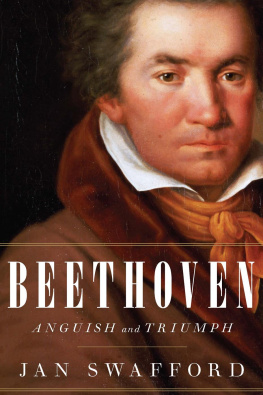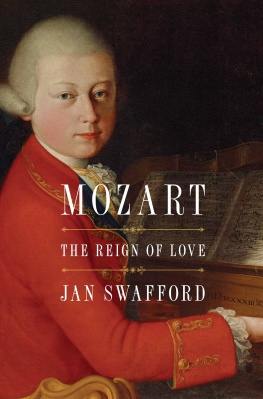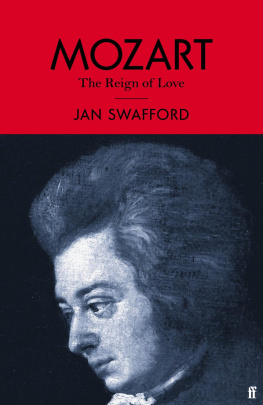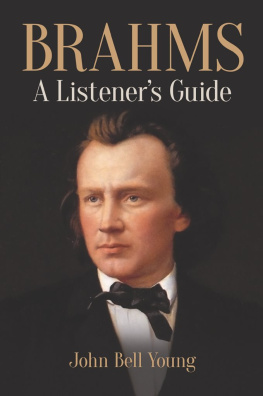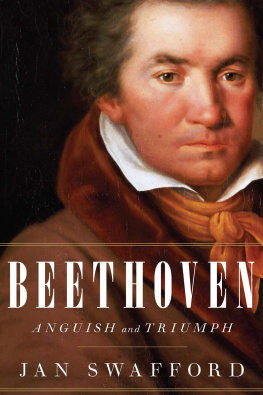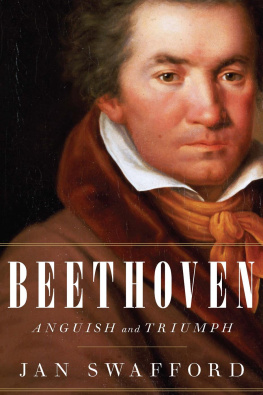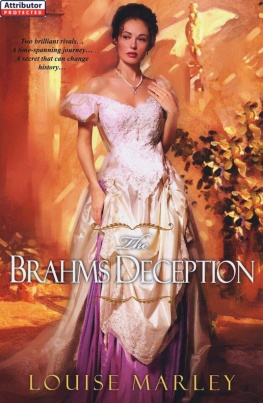Jan Swafford - Johannes Brahms: A Biography
Here you can read online Jan Swafford - Johannes Brahms: A Biography full text of the book (entire story) in english for free. Download pdf and epub, get meaning, cover and reviews about this ebook. year: 2012, publisher: Vintage Books, genre: Non-fiction. Description of the work, (preface) as well as reviews are available. Best literature library LitArk.com created for fans of good reading and offers a wide selection of genres:
Romance novel
Science fiction
Adventure
Detective
Science
History
Home and family
Prose
Art
Politics
Computer
Non-fiction
Religion
Business
Children
Humor
Choose a favorite category and find really read worthwhile books. Enjoy immersion in the world of imagination, feel the emotions of the characters or learn something new for yourself, make an fascinating discovery.

- Book:Johannes Brahms: A Biography
- Author:
- Publisher:Vintage Books
- Genre:
- Year:2012
- Rating:4 / 5
- Favourites:Add to favourites
- Your mark:
- 80
- 1
- 2
- 3
- 4
- 5
Johannes Brahms: A Biography: summary, description and annotation
We offer to read an annotation, description, summary or preface (depends on what the author of the book "Johannes Brahms: A Biography" wrote himself). If you haven't found the necessary information about the book — write in the comments, we will try to find it.
Johannes Brahms: A Biography — read online for free the complete book (whole text) full work
Below is the text of the book, divided by pages. System saving the place of the last page read, allows you to conveniently read the book "Johannes Brahms: A Biography" online for free, without having to search again every time where you left off. Put a bookmark, and you can go to the page where you finished reading at any time.
Font size:
Interval:
Bookmark:

Johannes Brahms
A meticulous portrait. Swafford has thoroughly mined the existing literature, both scholarly and popular, and has managed to weave it into his narrative in a seamless fashion. At times [the writing] unfolds with remarkable lyricism and sweep.
Los Angeles Times
A thoroughly involving portrait of Brahms the scale of Swaffords research and acuity of his insights contribute to a book of rare value. It cannily balances the man and his music, doing justice to both.
The San Diego Union-Tribune
A big, ambitious book that takes the whole man as its subject. [Swafford] delivers the goods on Brahms with panache.
Washington Times
Jan Swaffords intelligent, gracefully written biography offers perhaps the richest and most integrated portrait weve yet had of Brahms as man and artist.
The Hartford Courant
[Swaffords] analysis of Brahmss performing career as pianist and conductor is especially fascinating.
The New York Times
An informative and well-researched path into the complex personality of [Brahms].
The Boston Globe
[Swafford] colors in our grainy portrait of a man who was ambivalent, insecure, arrogant and only intermittently loveable. Sharply drawn.
Newsday
The author of [the] much-acclaimed biography Charles Ives: A Life with Music, Swafford has produced yet another masterpiece. This voluminous work combines formidable scholarship with an engaging, cant-put-it-down writing style.
Library Journal
Johannes Brahms
Jan Swafford received degrees from Harvard and the Yale School of Music and is the author of Charles Ives: A Life with Music, which was a finalist for the 1996 National Book Critics Circle Award for biography, won the PEN/Winship Award, and was hailed by Newsweek as one of the best biographies in recent memory. He is also the author of The Vintage Guide to Classical Music and a featured commentator on NPRs Performance Today. An award-winning composer whose work has been widely performed by ensembles here and abroad, he lives in eastern Massachusetts.
ALSO BY JAN SWAFFORD
The Vintage Guide to Classical Music
Charles Ives: A Life with Music

FIRST VINTAGE BOOKS EDITION, DECEMBER 1999
Copyright 1997 by Jan Swafford
All rights reserved under International and Pan-American Copyright Conventions. Published in the United States by Vintage Books, a division of Random House, Inc., New York, and simultaneously in Canada by Random House of Canada Limited, Toronto. Originally published in hardcover in the United States by Alfred A. Knopf, Inc., New York, in 1997.
Vintage and colophon are registered trademarks of Random House, Inc.
The Library of Congress has cataloged the Knopf edition as follows:
Swafford, Jan.
Johannes Brahms: a biography / by Jan Swafford.
p. cm.
Includes bibliographical references.
1. Brahms, Johannes, 18331897.
2. ComposersGermanyBiography.
I. Title.
ML 410.B8S93 1997
780.92DC21 97-29308
[B] MN
eISBN: 978-0-307-80989-6
www.vintagebooks.com
v3.1
For my brother, Charles Johnson
with thanks, among other things,
for all the laughs and all the patience
Illustrations will be found following
respectively
A HUNDRED YEARS AGO as of this writing, on April 3, 1897, Johannes Brahms died in Vienna. The city gave him one of the grandest funerals ever seen in a place that loves extravagant funerals. Brahms was a prophet very much honored in his adopted country and even, belatedly, in his own. When he died the flags in the harbor of his native Hamburg flew at half-mast. It was an uncommon tribute from a mercantile, matter-of-fact town to an elusive master of an elusive art. North German Hamburg, and Vienna, which is like nothing but Viennathe two cities marked the poles of his life and career.
My God, what do you want? Brahms exclaimed in later years to a friend who had tried to call him underappreciated. Ive gotten far enough! Soon after, at the inauguration of a new concert hall in Zrich, he looked up to the ceiling to find likenesses of Bach, Beethoven, and Brahms. Two decades before that, in the wake of his First Symphony, one of the leading conductors in Europe had proclaimed the formula the three great Bs of music, the others being his companions on the ceiling in Zrich. If Brahms was not the equal of Bach and Beethoven and knew it, he was the only composer of his generation writing chamber and symphonic music at their level of ambition, craft, and originality, and he knew that too.
Among his prophecies was that in those respects he was the end of the line. Once again, in his terms, he was correct. Gustav Mahler, the prophetic genius of the next generation whose early symphonies Brahms knew, could only say of his own achievement, My time is yet to come. He meant, when I am dead. In one way or another, most composers since Mahler have said the same. As far as Brahms was concerned, the heyday of his music was his own lifetime. His ultimate fear was that when his milieu fell apart, as was happening before his eyes, so would his audience. But still he knew that he had triumphed as few composers have ever done in their own era, and had done it under incredible conditions: introduced to the world at age twenty as the heir of Beethoven and the Messiah of music, having to grow to maturity with that sword hanging over him.
It is perhaps an inevitable human consequence and balancing-out that none of it made him happy. Given his personality, at once blustery and withdrawn, it is also inevitable that as the withering glare of renown turned on him, Brahms would retreat into himself, revealing less and less, placing the finely wrought mask of his music between himself and the world. Near the end of his life he exploded to old friends: I have no friends!
The world that he wanted to keep at bay included the necessary evil of biography. Early in his career he wrote Clara Schumann: What would become of all historical research and biographies if undertaken with an eye to the susceptibilities of the subject? In later years, he lectured a potential biographer in the opposite doctrine: The chief consideration, in the selection of material for a biography of an artist or author, should be whether the facts in question were of a nature to make the artist, whom we love and honor in his art, also win our esteem as a man. Material contrary to the honor of a great man, he had concluded, must be obliterated. So he destroyed by fire and water much of the record of his life that he could get his hands on.
Did he hope to avoid the predations of biography entirely? No, he was too realistic for that. If his work had any chance of survival, biography was part of the game. Did he have something terrible to hide? Perhaps terrible to him, perhaps not so unusual from the perspective of our time, perhaps nothing so terrible in any case. His craving for prostitutes, the only major peccadillo we know of in his adulthood, was nothing remarkable for a bachelor in his day in Germany and Austria.
Still, whatever his reasons for hiding from history, and however incompletely he succeeded, his attempt had its effects. The triumph of his music, contrary to his fears, did not begin to slacken from the day of his death but persisted through the Modernist century. Yet during that period, as millions took up his music, Brahms remained an oddly isolated figure, appearing irrelevant not only to Modernism but to his own timeespecially in comparison to his mentor Schumann and his rivals Liszt and Wagner. In contrast to those three, Brahms destroyed many of his personal records and never wrote a word of aesthetics or criticism or direct comment on his own or anyone elses music. His first foray into public musical politics, one embarrassing page in length, was also his last. Thereafter he wielded his influence behind the scenes, letting others fight it out onstage.
Font size:
Interval:
Bookmark:
Similar books «Johannes Brahms: A Biography»
Look at similar books to Johannes Brahms: A Biography. We have selected literature similar in name and meaning in the hope of providing readers with more options to find new, interesting, not yet read works.
Discussion, reviews of the book Johannes Brahms: A Biography and just readers' own opinions. Leave your comments, write what you think about the work, its meaning or the main characters. Specify what exactly you liked and what you didn't like, and why you think so.

